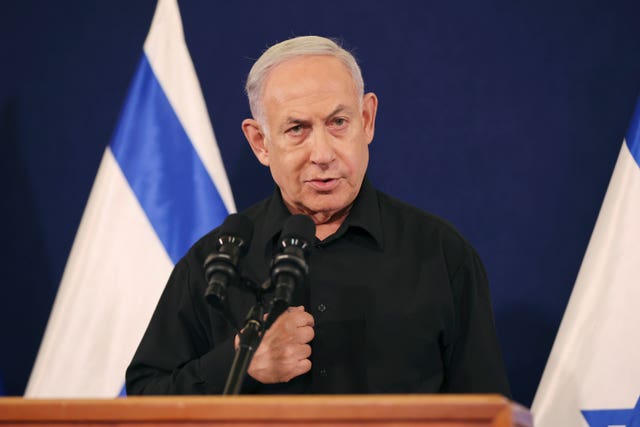Hamas clears way for possible ceasefire after dropping key demand, officials say
The apparent compromise by the militant group could help deliver the first pause in fighting since last November.

Hamas has given initial approval for a US-backed proposal for a phased ceasefire in Gaza, dropping a key demand that Israel gives an up-front commitment for a complete end to the war, Hamas and Egyptian officials said.
The apparent compromise by the militant group — which controlled Gaza before triggering the war with an October 7 attack on Israel — could help deliver the first pause in fighting since last November and set the stage for further talks on ending a devastating nine-month war, but all sides cautioned that a deal is not guaranteed.
The two officials said Washington’s phased deal will start with a “full and complete” six-week ceasefire that would see the release of a number of Israeli hostages, including women, the elderly and the wounded, in exchange for the release of hundreds of Palestinian prisoners.

Over that period, Hamas, Israel and mediators would also negotiate the terms of the second phase that could see the release of the remaining male hostages, both civilians and soldiers, the officials said. In return, Israel would free additional Palestinian prisoners and detainees.
The third phase would see the return of any remaining hostages, including bodies of dead captives, and the start of a years-long reconstruction project.
Hamas still wants “written guarantees” from mediators that Israel will continue to negotiate a permanent ceasefire once the first phase goes into effect, the two officials said.
The Hamas representative told the Associated Press the group’s approval came after it received “verbal commitments and guarantees” from the mediators that the war will not be resumed and that negotiations will continue until a permanent ceasefire is reached.
“Now we want these guarantees on paper,” he said.
Months of talks have stumbled over Hamas’s demand that any deal include a complete end to the war.

Hamas has previously expressed concern Israel will resume the war after the hostages are released, and Israeli officials have said they are worried Hamas will draw out the talks and the initial ceasefire indefinitely, without releasing all the hostages.
Israel launched the war in Gaza after Hamas’s October attack, in which militants stormed into southern Israel, killed 1,200 people — mostly civilians — and abducted about 250.
Since then, the Israeli air and ground offensive has killed more than 38,000 people in Gaza, according to the territory’s Health Ministry, which does not distinguish between combatants and civilians in its count.
The offensive has caused widespread devastation and unleashed a humanitarian crisis that has left hundreds of thousands of people on the brink of famine, according to international officials.
Israel says Hamas is still holding about 120 hostages — about a third of which Israel believes to have died.
In line with previous proposals, the deal would see around 600 trucks of humanitarian aid entering Gaza daily — including 50 fuel trucks — with 300 bound for the hard-hit north of the enclave, the officials said.





